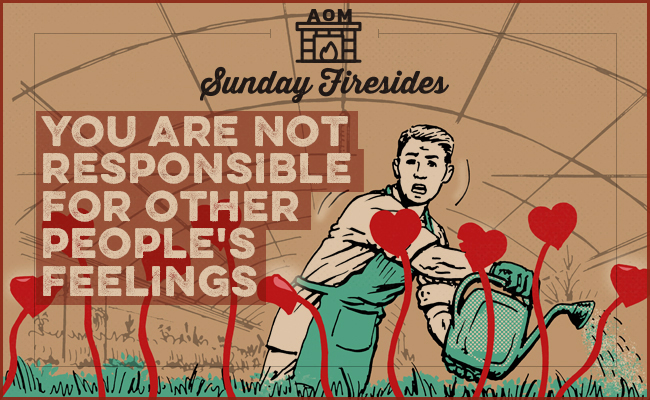“I can’t break up with her; she’d be devastated.â€
“I can’t quit my job; it would stress out my co-workers.â€
“I can’t say no to helping out with this event; my friend would be really frustrated.â€
These are the kinds of things that run through many men’s minds — especially those of the “Nice Guy†type — when they think about making a decision that will affect other people. Even contemplating making such a choice fills them dread and anxiety; they feel emotional upset . . . at the prospect of creating emotional upset in another.
What they don’t realize is this: You are not responsible for other people’s feelings.
Now, don’t get me wrong, the fact that you’re not responsible for other people’s feelings, doesn’t mean you’re not responsible for your actions towards them. You should fulfill your promises and moral obligations. You should treat people ethically and civilly. It’s a bunch of bullocks when someone sneers that they couldn’t help the fact that someone else chose to be offended, when they made it almost impossible for that person to react in any other way.
But when your decision doesn’t carry moral import, and you make it with all the politeness and respect possible, then you’re not responsible for how the other person deals with your choice. Whether they deal with it resiliently or not, rationally or not, generously or not, is up to them. You cannot control their reaction. And you cannot make your own decisions based on their expected response.
The human experience is difficult enough in only managing your own emotional ecosystem; it is infinitely more so if you try to manage yours, along with everyone else’s.



